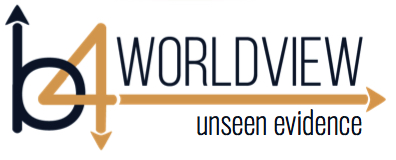
Key Thought for this session:
“If any outcome of life is acceptable to me, then any path will get me there.”
Clearly the two paths are different. One is self-striving for a worthiness that is earned, and the other is having worthiness bestowed on them. The question you must answer for yourself is: do both work? Do neither work? Or is there one that is true? In one case, worthiness comes from a person’s extraordinary effort based on the guidance received from a supernatural being. But the power of the supernatural being did not extend to the point of being able to bestow righteousness on the man. In the other case, blessing came to the woman by her receiving and trusting the extraordinary works of a super natural being, who had both the will and power to bless her and make her worthy. It’s likely that some will see the two paths to obtain worthiness as preferential and some will see the paths as competing—because they see that the two paths contradict each other.
Finding truth in what someone tells us can be a challenge. Regardless of whether you believe truth is relative or absolute, you have to pick between options when they compete with each other regarding the outcome you want. Yet, you cannot always rely on physical evidence to show you which is best. Actually, more often than not, you must trust the “storyteller.” The real question for us is this: Can we trust the storyteller (or teacher or authority) enough and rely on the truths told, in order to be able to live our lives by them? If you find the storyteller to be worthy of your trust, then you can rely on the truth enough to live your life by it. In establishing your worldviews, you must decide that This is your worldview challenge. This is determining “which way is up?” And oh, by the way, you are not alone. It is my challenge. It is the challenge of everyone taking this course. It has been and will be the challenge of every human whoever lived and ever will live.
So, ... Determining who to trust is a BIG DEAL, don’t you think? It can be exciting and it can sometimes be intimidating!
Nearly every book, Internet site, teacher, movie, music artist, and any other prospective authority in our lives has the potential to be an important “storyteller” for us. You probably agree with me that most of these present what they claim to be “truths” that we cannot validate by science, but they can affect our lives in big ways. Do all these storytellers agree? Obviously not! That means we really need to figure out which “storytellers” we should trust. Because ultimately those we trust have a big influence on what decisions we make and what things we do. This is why a study of worldview is so important ... it helps us figure out which storytellers we can trust.
One last example. This may be the most common judgment you make. How often do people ask you, "How are you doing?" and you say, "GOOOOD." They say, "How's your day going?" You say, "GOOOOD."
What about when someone asks, "How was your dinner?" and you respond "GOOOOOOD."
Have you ever thought much about what makes something "goooood"?
I had an elderly neighbor recently (he has since died) that would correct me when I used "good" as an adverb. He would say "use 'well' as an adverb and 'good' as an adjective." So, I got a "good" grammar lesson on the use of "good." However, the most important aspect of the word "good" for each of us is what we believe "MAKES something 'good.'"
What do you think about this? Take a moment and pick from these two options of “what makes an object good?” Is it how the object meets our desires or is it about who makes the object? Which do you USUALLY mean when you say something is “good”?